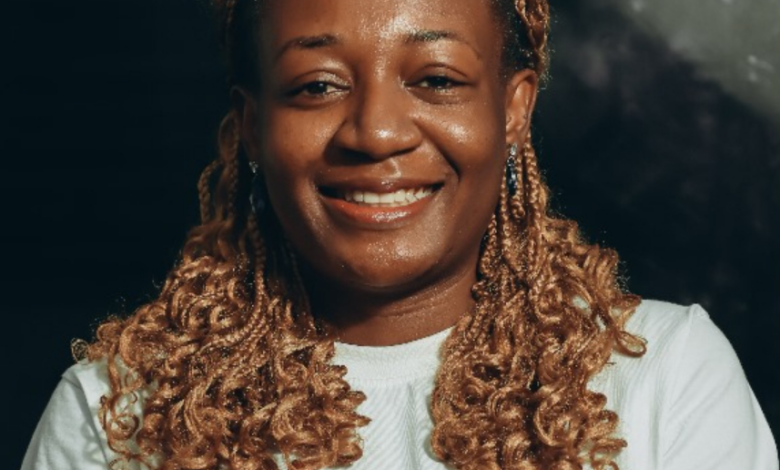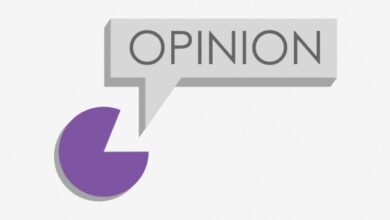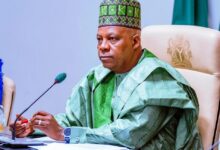Nigeria’s Urgent Need for Increased Government Funding in the Water Sector

In Nigeria, walk two kilometres in any direction, and you’ll likely encounter at least three boreholes.
Boreholes and wells have now become ubiquitous features in communities, symbolising the nation’s struggle with water access. But why, in a land abundant with water resources, do boreholes and wells define our landscape? Dry taps have become relics, haunting reminders of a time when public utilities provided intermittent water supply in the 1970s and 1980s. Today, even this limited public provision feels like a distant memory. Potable water remains an inaccessible luxury, especially for the poor.
Nigeria’s significant water resources—estimated at 215 billion m³ of surface water and 87 billion m³ of groundwater—contradict the reality that many Nigerians face daily. Despite abundant rivers, lakes, and rainfall, the United Nations reports that only 13% of Nigerians have access to clean drinking water services.
In rural areas, long treks to fetch water from questionable sources exacerbate issues of hygiene, economic disparity, and gender inequality.
The urban landscape paints a similarly bleak picture as low- and mid-income earners rely on water merchants locally known as ‘mai-ruwas’ who set arbitrary prices, further straining already-lean household budgets. Even the economically advantaged have to rely on privately-dug boreholes to fulfil their daily water needs.
These dismal statistics are closely linked to the chronic underfunding of Nigeria’s water sector by the government. Over the years, Nigerians have had to rely heavily on out-of-pocket expenses and donor funding to meet their water needs.
While other nations have advanced their infrastructure and social indices, Nigeria has regressed, moving from a public water supply system to one dominated by private and donor-funded solutions. It’s time to ask, what are we doing? How did we get here?
A 2018 WASH account by the World Health Organization (WHO) revealed that local expenditure in the sector amounted to N3.6 trillion, with households contributing 91%, government expenditure a meagre 4%, and the remainder donor-funded.
This glaring imbalance underscores the urgent need for increased government investment in the water sector. International organisations and philanthropic foundations have poured dollars and euros into Nigeria’s water sector, while local governance and public investments have faltered.
Relying excessively on donor funding for essential utilities like water often leads to unsustainable and ineffective solutions. While external funding provides temporary relief, it fails to address deeper issues of sustainable management and maintenance critical for long-term success.
This approach is akin to using a band-aid to plug a leaking dam—it may offer a quick fix but does not resolve underlying issues. Sustainable solutions require robust systems and local ownership, achieved through increased government funding and community engagement. This demands a greater focus on developing local leadership, infrastructure, and accountability mechanisms to ensure the longevity of development projects.
Donor funds for the water sector come from international and local non-profits and through grants and loans to state governments from External Support Agencies (ESAs). Over 18 of the 36 states in Nigeria have received huge external support in either loans or grants to support their water sector, with the biggest ESAs being the World Bank, the African Development Bank, and the United States Agency for International Development (USAID).
The World Bank estimates that Nigeria must quadruple its domestic public expenditure on water by 2030 to achieve Sustainable Development Goal 6. The internationally recommended benchmark for government funding of water is 15-20% of total public expenditure and 4-6% of GDP. Nigeria falls woefully short of this benchmark, with the Federal Ministry of Water Resources allocated only 1.11% of the 2023 budget.
The 2024 fiscal budget has even taken it down a notch by allocating only 1.03% (N296.64bn) of the approved 2024 budget for water resources.
More public funds need to flow into the water sector, nourishing it from the roots up. Increasing public funding for the water sector offers several advantages. First, when the government adequately invests in water infrastructure, it ensures that solutions are tailored to local needs. Public control means we can prioritise communities over headlines, ensuring sustainable and equitable water distribution.
Increasingly, the Nigerian government is embracing public-private partnerships (PPPs) as financing models for basic utilities. Yet, history shows privatisation often prioritises profit over community needs.
When Nigeria privatised electricity in 2013, we were delusively promised improvements in power supply post-privatisation. A decade later, we are paying more for pitch darkness. Darkness has never been this expensive. Water should not follow this path.
As evidenced in a deep-dive report titled Africa Must Rise & Resist Water Privatisation by the civil society watchdog, Corporate Accountability and Public Participation Africa(CAPPA), public control of water utilities stands not only as the most viable solution for communities but also as a progressive solution for even governments, as case studies around the world have indicated dire consequences for governments that commodified water services.
The case for democratic control of water infrastructure is further strengthened by the fact that public funds come with inherent scrutiny and accountability, enabling citizens to demand transparency and efficiency, which is not often feasible with distant donors.
Under this governance approach, resources allocated for projects are viewed as coming from the collective purse, fostering a communal desire to ensure and interrogate their effective utilisation.
Consider this: The World Bank hypothetically announces a $100 million loan facility to improve water access in Lagos State. The project includes constructing new treatment plants, repairing infrastructure, and extending pipelines.
However, issues like lack of transparency, financial mismanagement, delays, and cost overruns arise, leading to public frustration.
If funded by public money, the project would be subject to parliamentary oversight, detailed audits, and greater transparency. Citizens feel more empowered when their tax money is at stake, enabling them to pressure representatives and officials for efficient and transparent use of funds.
Donor funds, if needed at all, should complement, not replace, robust and sound public funding systems. If Nigeria will have any hope of achieving SDG 6 and providing water for its teeming population, the government must boost domestic public funding of the sector.
The current 1% of total public expenditure allocated to water resources is simply inadequate and frankly calls to question if Nigeria has any intention of ever providing clean, cheap water for its citizens at all.
Sefa Ikpa is the Programme Officer, Water Campaign, Corporate Accountability and Public Participation Africa (CAPPA)






